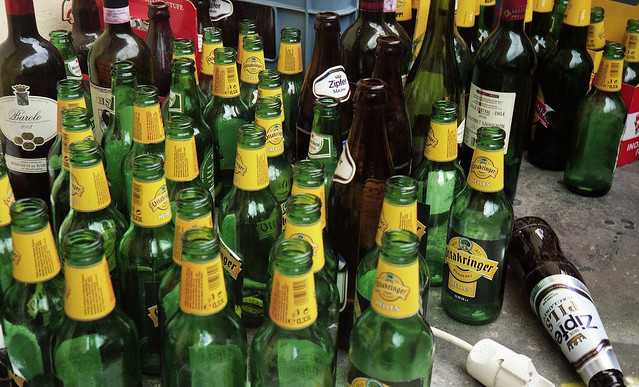Genetic Binge Drinking: Alcohol Cravings Come From Chemical in the Brain
March 9th, 2011

http://www.flickr.com/photos/bernhardbenke/2671582239
TLR4 expression ‘contributes to binge drinking and may be a key early neuro-adaptation in excessive drinking,’ said Psychologist Professor Harry June of Maryland University. The protein is expressed by a gene in part of the brain called the amygdala, known as the brain’s “pleasure center.” It could be an area of interest for the future development of anti-alcoholism drugs.
The study that founded this discovery worked with laboratory rats as subjects, manipulating their production of TLR4 and observing its effects on their alcohol consumption. Alcohol-preferring rats experienced ‘profound and selective reduction of binge drinking’ when their TLR4 production was altered. These rats received artificially-simulated TLR4 that mimicked the positive emotions felt by binge drinkers when they consume alcoholic beverages. As a result, they lost interest in alcohol for two weeks following the procedure.
The results of this study suggest not only that alcoholism is a brain-related issue, but also that certain modifications of brain proteins may in fact help to reduce cravings for alcohol. Alcoholics in recovery may benefit from this research in the near future.

